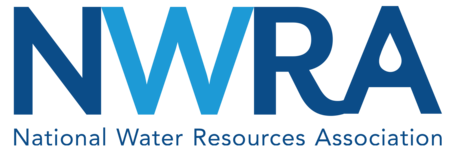HISTORYWhile its roots go back to the 1890s, the National Water Resources Association (NWRA) was established as a formal association (the National Reclamation Association [NRA]) on December 6, 1932, at the State Capitol in Salt Lake City, Utah. In conjunction with a meeting of western governors, Governor George Henry Dern of Utah and Governor Julius L. Meier of Oregon convened a meeting of western water leaders for the sole purpose of establishing a formal organization to bring irrigation and reclamation to the arid and semiarid West. Fifteen states collectively sent over 90 delegates, led by Utah with 27 and Idaho with 17, to participate in this historic conference. The NRA was established at a time when the Bureau of Reclamation was at its lowest ebb. In fact, many were fearful that without the united efforts of all of the West, the entire reclamation program would be lost. | National Resource Association Becomes the National Water Resource Association As the construction of major reclamation projects ebbed in the late 1960s, the association began to lose focus and direction. Up to this point in time, the NRA's mission was clear and concise: to promote the authorization and construction of reclamation projects throughout the West. However, the NRA's members were becoming increasingly concerned with policy issues relating to water quality, acreage limitation, and environmental protection; national water policy proposals; and water rights disputes. New development was no longer the overriding concern. A majority of the leadership of the association felt it was time to project a more national perspective on water policy and development. Subsequently, believing that the name was no longer attuned to the times, the delegates to the 38th annual convention, which met in November 1969 in Spokane, Washington, voted to change the association’s name to the National Water Resources Association.Speaker after speaker at the convention addressed the waning influence of national, and in some cases western, support for the unfettered construction of irrigation projects. Congressman Wayne Aspinall, a staunch supporter of Reclamation, observed that supporters of competing programs talked in terms of broadening their support while Reclamation talked of reducing opposition. However, despite these warnings, the association's leadership continued, for the most part, to pursue goals focused almost exclusively on new water development. The association's president told the delegates, "If we do not convince the nation's leaders to look ahead to more water resources development, we have doomed to failure many of the best opportunities for the better life of all of the people of America." For most of the 1970s and into the early 1980s, the association's leadership struggled to address the competing interests of its broad-based membership. States still awaiting the promise of reclamation projects pushed for additional project authorizations and increased federal funding for irrigation facilities. Other western water leaders urged the association to take a more active role in the formulation of legislation and regulations impacting water deliveries and the water and environmental policy initiatives being debated in Congress. Out of the 1980s emerged an organization clearly focused on the policy issues that caused major concern for the supply of municipal and irrigation water in the West. The leadership and staff of the association were actively involved in the promulgation of rules and regulations implementing the Reclamation Reform Act of 1982; efforts to reauthorize the Clean Water Act, Endangered Species Act and Safe Drinking Water Act; and legislation and regulations impacting water quality and quantity. Today, the NWRA is a strong federation of state associations and caucuses representing a broad spectrum of water supply interests. It is the oldest and most active national association concerned with water resources policy and development. Its strength is a reflection of the tremendous grassroots participation local communities have generated on virtually every national issue affecting western water conservation, management, and development. |

